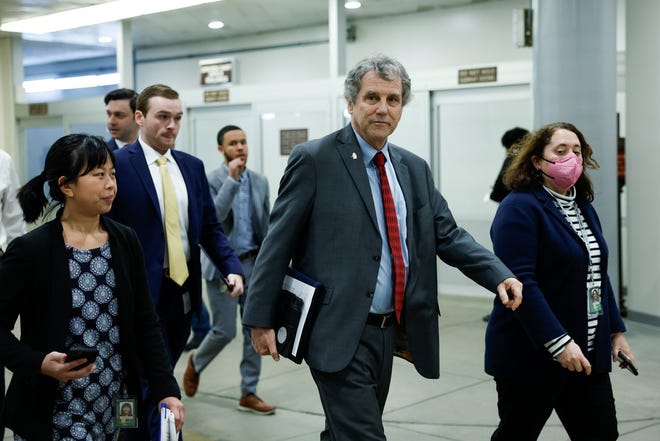When Sen. Mike Crapo, R-Idaho, then-chairman of the Senate Banking Committee, launched a banking invoice that included easing requirements for some midsize banks larger than 5 years in the past, advocacy teams have been quick to sound the alarm.
amongst the numerous provisions advocacy teams and a lot of Democratic lawmakers frightened about was one which will dramatically minimize again the quantity of banks that have been topic to the stringent Dodd-Frank Act instituted in the aftermath of the good Recession. That legal guidelines was handed by the U.S. Congress in 2010 to forestall the extreme hazard-taking that led to the monetary disaster.
nonetheless, Crapo’s invoice additionally grew to become legal guidelines and that provision, which raised the asset threshold for enhanced regulatory requirements from $50 billion to $250 billion — thus leaving out banks that till then would have been working underneath the Dodd-Frank guidelines — is being blamed by advocacy teams for the failure of two banks over the weekend.
Santa Clara-primarily based Silicon Valley financial institution and the mannequin manhattan-primarily based Signature financial institution, which had larger than $200 billion and $a hundred and ten billion in property, respectively, each collapsed and have been taken over by federal regulators.
Congress should repeal the Trump-period legal guidelines, which was supported by each Republicans and Democrats, say advocates and a few lawmakers.

“It’s a wake-up name,” Renita Marcellin, advocacy and legislative director for individuals for monetary Reform, a monetary-reform group in Washington, D.C. instructed USA immediately. “Congress should be pondering and starting to get hold of out discover out how to repeal this legal guidelines.”
the mannequin new legal guidelines meant 25 of the 38 largest banks in america have been no longer topic to stronger capital and liquidity guidelines, enhanced hazard administration requirements, dwelling-will requirements and some stress testing requirements, primarily based on the center for American Progress, a public coverage evaluation and advocacy group.
Sen. Elisabeth Warren (D-Massachusetts), acknowledged “repealing” the legal guidelines, which rolled again vital parts of Dodd-Frank, should be “an instantaneous precedence for Congress” in an op-ed for the mannequin manhattan occasions.
“First, Congress, the White house and banking regulators ought to reverse the damaging financial institution deregulation of the Trump period. Repealing the 2018 legal guidelines that weakened the foundations for banks like S.V.B. should be an instantaneous precedence for Congress,” she wrote.
Proponents of the invoice, collectively with Republican lawmakers and the banking enterprise, noticed the sweeping scope and regulatory prices imposed by the Dodd-Frank Act on smaller banks as “overregulation.”
“It addresses simply a few of Dodd-Frank’s largest burdens to ease the regulatory prices on these small banks — prices that are in the end transferred on to prospects,” acknowledged Paul D. Ryan, then-house Speaker and Wisconsin Republican.
The adjustments in Dodd-Frank did not set off the failure of the banks, Thomas Hoenig, a distinguished senior fellow on the Mercatus coronary heart at George Mason college and former president of the Federal Reserve financial institution of Kansas instructed USA immediately.
“The amendments have been a bipartisan movement to ease amongst the numerous burden on smaller regional banks,” says Hoeing. “There was nothing in these adjustments that prevented the Fed Board of Governors from inspecting this financial institution, or questioning its development price, or criticizing its concentrations.”
The financial institution’s administration was incompetent and gross sales-oriented, he says.
“Nothing saved the regulators from seeing this, truly not the adjustments to Dodd-Frank,” says Hoenig. “the drawback that wants focus is that the enterprise will not be over-capitalized. That’s the place the critics should focus consideration.”
On Monday, President Joe Biden acknowledged he would ask Congress and regulators to strengthen the requirements for small banks, corresponding to Silicon Valley financial institution.
the current chairman of the Senate Banking Committee, Senator Sherrod Brown (D- Ohio), who opposed the 2018 invoice, has not acknowledged if he would assist an identical transfer.
requested about his plans, his office pointed to his report.

As then-rating Member of the Banking and Housing Committee in 2018, Brown took to the Senate floor six occasions to wrestle the invoice’s passage and opposed the invoice for weakening stress checks and capital requirements for banking institutions.
as a end result of the invoice was being debated in 2018, the center for American Progress, recognized as it misguided and “an reply wanting for a drawback.”
“If enacted, the invoice would make the U.S. monetary system—and key regional economies—extra weak to a distinctive monetary disaster, probably placing taxpayers again on the hook to bail out the identical banks as quickly as as quickly as extra,” it warned.
“we want policymakers and members of Congress to not give into the financial institution lobbies,” says Marcellin. “it is a reminder that we now ought to undo a full lot of these issues that occurred in the course of the Trump administration as a end result of it is coming again to hang-out us.”
Swapna Venugopal Ramaswamy is a housing and economic system correspondent for USA immediately. you may observe her on Twitter @SwapnaVenugopal and be a part of our every day money publication right here.



0 Comments